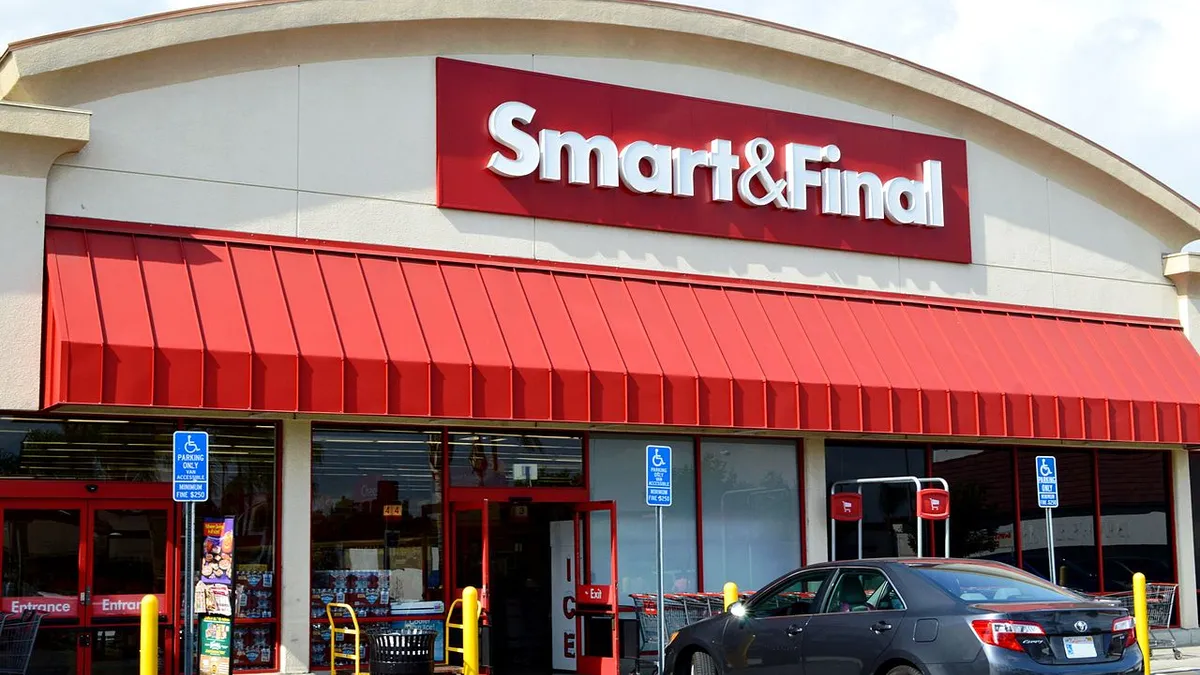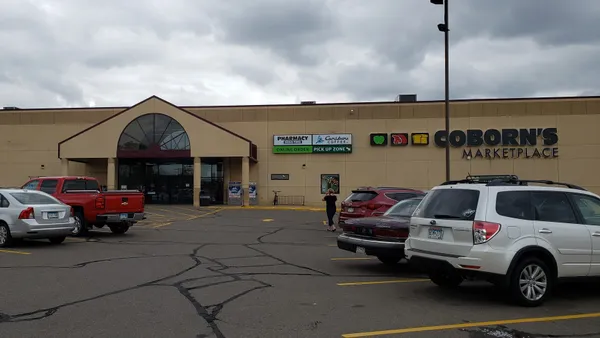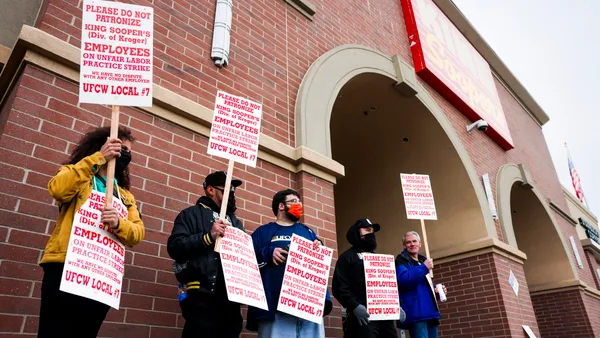Dive Brief:
- Smart & Final is weighing a possible sale, according to Reuters, citing unnamed sources. The California company has contacted private equity firms that could be potential buyers, though nothing is assured at this point, the news source reported.
- Smart & Final’s stock is currently half of what it was when the company went public in 2014. Ares Management Corp., which owns a controlling stake in the retailer, bought Smart & Final from private equity firm Apollo Global Management in 2012 for $975 million, including debt.
- The retailer operates 324 grocery stores and foodservice outlets in California, Oregon, Washington, Nevada, Idaho, Arizona, Montana and Utah. Its latest quarterly earnings showed a 0.6% increase in same-store sales while earnings were $62.3 million, down 1% from the year-ago period.
Dive Insight:
Smart & Final, which promotes prices 12% to 14% below the competition, has undergone significant changes since it went public in 2014. At its warehouse stores, which make up the majority of its footprint, it has doubled the size of its meat department, expanded its private label assortment and launched home delivery from most locations.
The company has thrown its weight behind its Extra! store format, which features a wider assortment of perishable, organic and household products than its legacy stores. The format, which launched in 2008, now comprises more than three-quarters of Smart & Final’s warehouse store portfolio.
Smart & Final also has steadily grown its footprint, acquiring 33 Haggen stores in 2016 and building 15 new locations in 2017. But intensifying competition from in markets like Southern California has curbed Smart & Final’s warehouse store growth. The company opened fewer than 10 locations last year and closed almost as many. This year, it plans to open just two or three Extra! stores.
More promising for Smart & Final is its foodservice outlet, rebranded last year to Smart Foodservice Warehouse Stores. The division, which serves restaurant operators, is benefiting from increased consumer spending on eating out, according to company executives.
Still, the struggling warehouse stores are a troubling sign for Smart & Final. Despite numerous updates to the format, the retailer is going up against Aldi, which has made an aggressive play in Southern California, as well as Walmart. Traditional grocers like Albertsons and Kroger have been lowering prices, making Smart & Final less of a unique proposition in the markets where it operates.
A sale could allow Smart & Final to make key long-term investments without being beholden to quarterly earnings. Private equity firms have a reputation for slashing spending but some, like Cerberus Capital Management, which owns Albertsons, have invested deeply in retail businesses. The Fresh Market ended a six-year run on the public market in 2016 after Apollo Global Management bought it for $1.36 billion. Under the firm, the North Carolina-based chain closed stores and curbed growth, and recently unveiled a new-look market that will serve as its expansion blueprint going forward.













